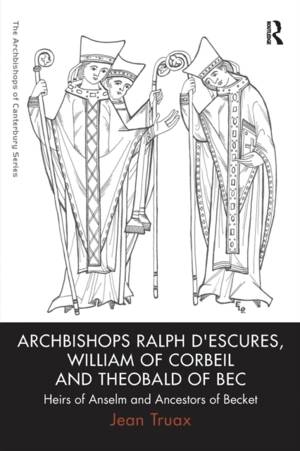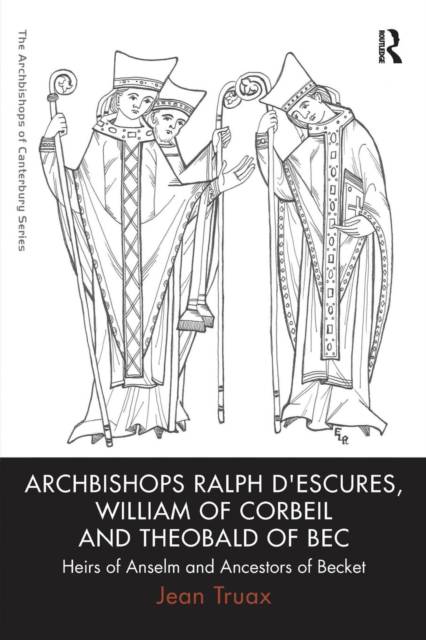
- Afhalen na 1 uur in een winkel met voorraad
- Gratis thuislevering in België vanaf € 30
- Ruim aanbod met 7 miljoen producten
- Afhalen na 1 uur in een winkel met voorraad
- Gratis thuislevering in België vanaf € 30
- Ruim aanbod met 7 miljoen producten
Zoeken
Archbishops Ralph d'Escures, William of Corbeil and Theobald of Bec
Heirs of Anselm and Ancestors of Becket
Jean Truax
€ 90,45
+ 180 punten
Uitvoering
Omschrijving
The first two archbishops of Canterbury after the Norman Conquest, Lanfranc and Anselm, were towering figures in the medieval church and the sixth archbishop, the martyred Thomas Becket, is perhaps the most famous figure ever to hold the office. In between these giants of the ecclesiastical world came three less noteworthy men: Ralph d'Escures, William of Corbeil, and Theobald of Bec. Jean Truax's volume in the Ashgate Archbishops of Canterbury Series uniquely examines the pontificates of these three minor archbishops. Presenting their biographies, careers, thought and works as a unified period, Truax highlights crucial developments in the English church during the period of the pontificates of these three archbishops, from the death of Anselm to Becket. The resurgent power of the papacy, a changed relationship between church and state and the expansion of archiepiscopal scope and power ensured that in 1162 Becket faced a very different world from the one that Anselm had left in 1109. Selected correspondence, newly translated chronicle accounts and the text and a discussion of the Canterbury forgeries complete the volume.
Specificaties
Betrokkenen
- Auteur(s):
- Uitgeverij:
Inhoud
- Aantal bladzijden:
- 312
- Taal:
- Engels
- Reeks:
Eigenschappen
- Productcode (EAN):
- 9780754668336
- Verschijningsdatum:
- 3/08/2012
- Uitvoering:
- Paperback
- Formaat:
- Trade paperback (VS)
- Afmetingen:
- 156 mm x 234 mm
- Gewicht:
- 439 g

Alleen bij Standaard Boekhandel
+ 180 punten op je klantenkaart van Standaard Boekhandel
Beoordelingen
We publiceren alleen reviews die voldoen aan de voorwaarden voor reviews. Bekijk onze voorwaarden voor reviews.











